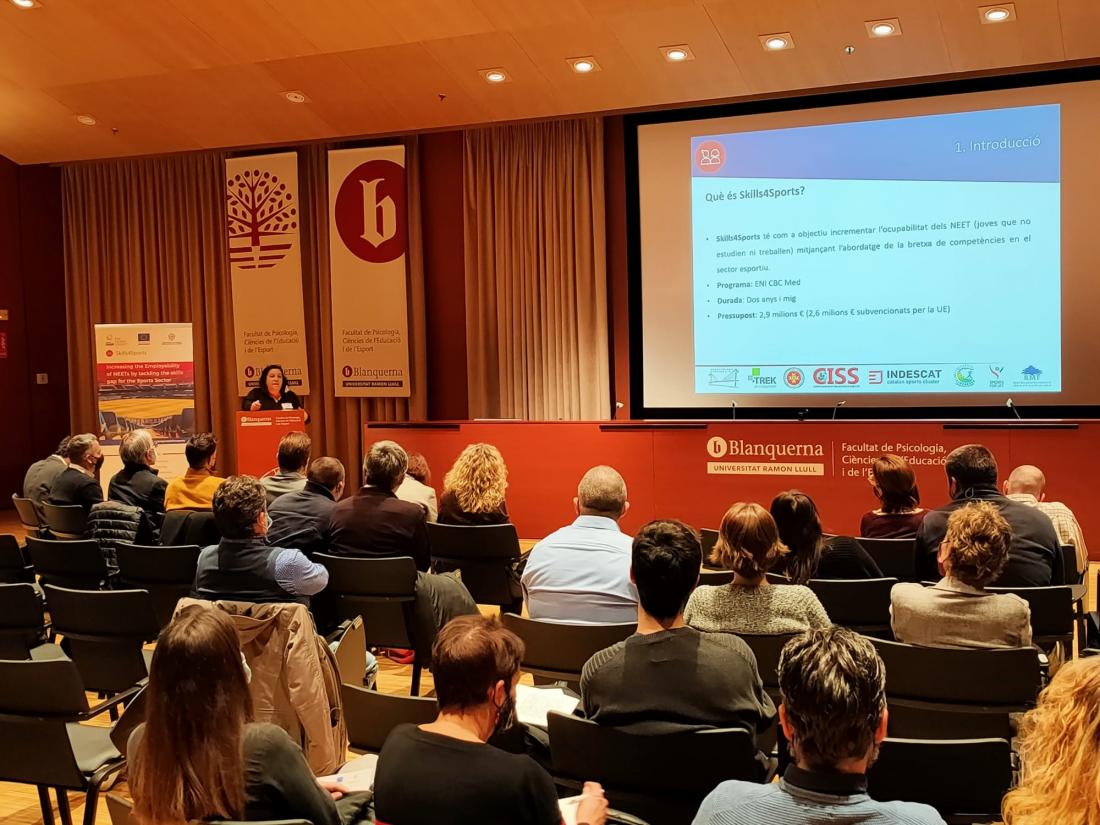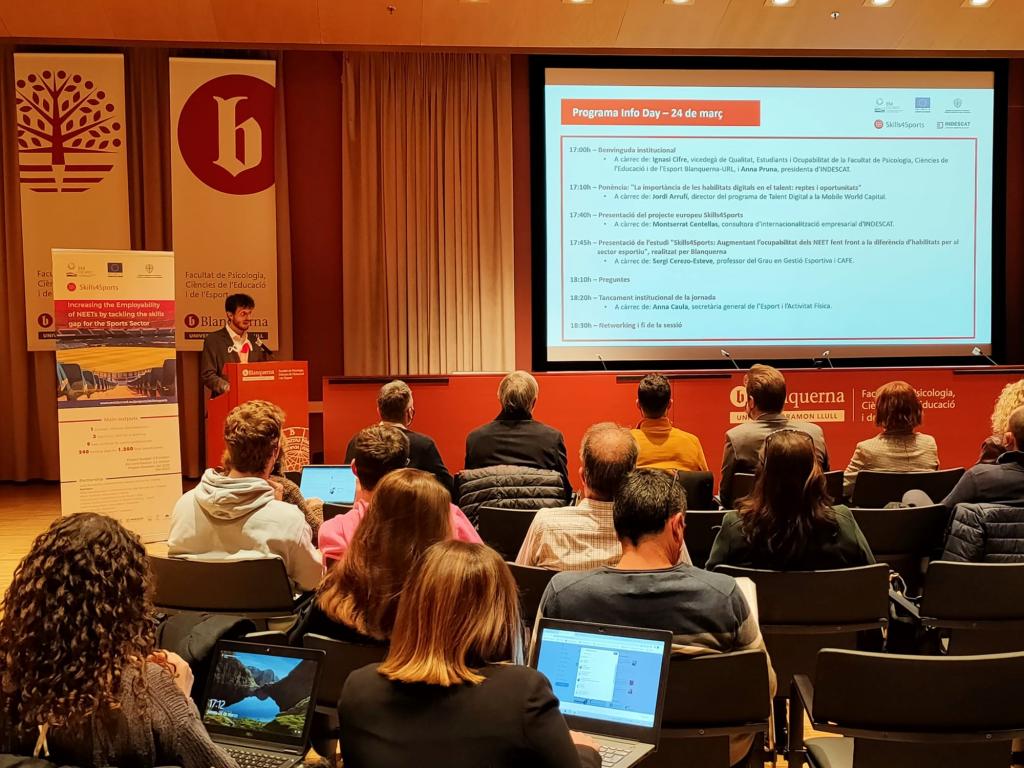Skills4Sports to create nine trainings in Catalonia in an effort to increase youth employment in sports

On 24 March 2022, the Catalan sports cluster INDESCAT, partner of Skills4Sports, organized an Infoday with the title "What are the professional skills required by the sports industry?" At this event, which was held at the Faculty of Psychology, Education and Sports Sciences of Blanquerna – University of Ramon Llull (FPCEE) and was attended by more than 40 professionals from the sports sector, the organisers presented the results of the study for the project ‘Skills4Sports: Increasing the Employability of NEETs by tackling the skills gap in the Sports Sector.’
This study was carried out by Blanquerna, on behalf of INDESCAT, and in the framework of the Skills4Sports project. A link to this report will be added upon publication.
Similar studies have also been carried out by project partners in Greece, Italy, Malta, Palestine and Lebanon, identifying the kind of skills that the majority of NEETs (Not in Employment Education or Training) have acquired and contributing to the understanding of what kind of skills are required by the sport industry. This is knowledge that can help NEETS gain better access to the labour market.

FPCEE Sports Management Professor Sergi Cerezo-Esteve presented the study and its main conclusions, stating that "NEETs in the sports sector have a good level of the variables analyzed, slightly below those of the same workers of the organizations, but very close to them. NEETs make a self-assessment about their abilities over what organizations perceive about them. This small gap tends to disappear once the NEETs join the labor market." Cerezo-Esteve concluded that "deficiencies are evident in NEETs about very specific variables (related to the dimensions of construction, care and protection or manipulation), a fact that should be used to complete their training through complementary educational actions.”
In the belief that better jobs and more opportunities are possible for NEETs, Skills4Sports aims to increase the employability of NEETs in the Mediterranean area through the creation of new curricula for sports-related professions, including business-oriented jobs of the sport sector such as merchandising, marketing, administration and event management.
Montserrat Centellas, INDESCAT's business internationalization consultant and responsible for communications, explained that one of the following actions to be carried out by INDESCAT, within the framework of Skills4Sports, is the creation of nine 40-hour training programmes. INDESCAT will be in charge of defining and implementing the training programme "Sociology of sport, laws, ethics and cybersecurity" and will also implement two other curricula developed by other project partners. The presentation of the study also included a talk on "The importance of digital skills in talent: challenges and opportunities", given by Jordi Arrufí, director of the Digital Talent programme at Mobile World Capital. Arrufí explained that "we must have a vision of digital transformation, know all the technological possibilities, and adapt to the constant opportunities of digitization" adding that “Digitization replaces jobs, but requires new skills. We have no industry excuse for not developing new digital skills within the industry.”
Ignasi Cifre, Vice Dean of Quality, Students and Employability of the FPCEE, offered the opening remarks of the event. He highlighted the importance of “events and activities at FCPEE related to skills and competencies, especially if they are organised by a cluster such as INDESCAT. ” Anna Pruna, president of INDESCAT, explained that what the study presented "is a small sample of the skills and areas that, as a sector, we will have to work on if we want to be an industry that generates quality employment." She concluded by saying that "Our wish is that this study helps companies to have value proposals in order to be more competitive." Closing remarks were offered by the General Secretary for Sport and Physical Activity, Anna Caula who stated that “we have to perceive sport as a tool that allows us to help ourselves in a large number of areas. Events like this one, for example, help us to be stronger, as a city and as a country.”
After the talks, the attendees were able to network, explore possibilities of creating synergies and exchange opinions and ideas with professionals of the sector.









